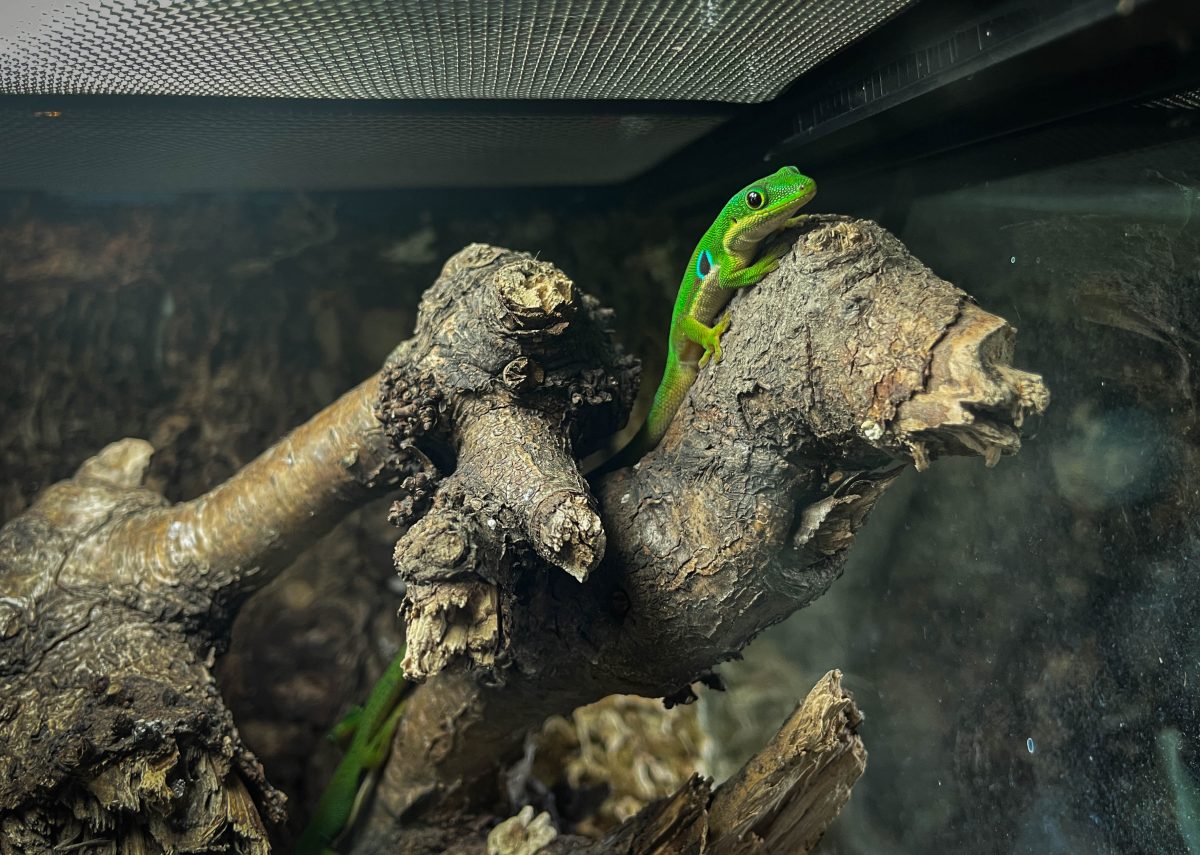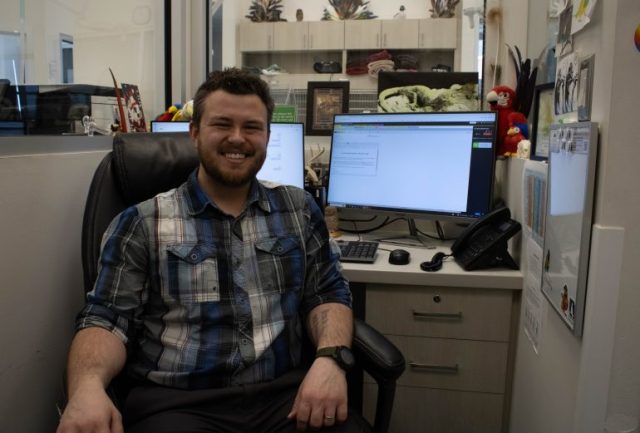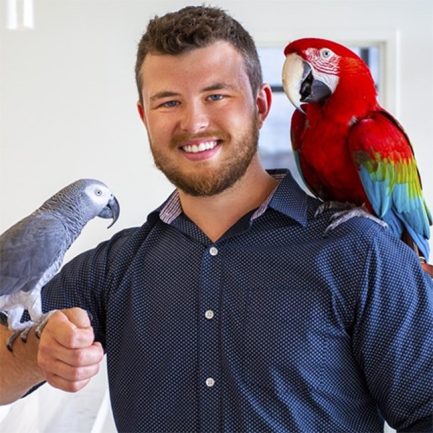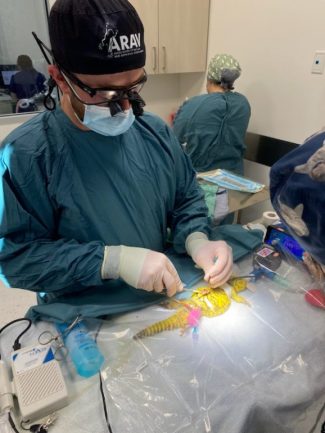Edmonton sees increase of exotic pets and veterinarians who treat them
By Nick Petlock on December 14, 2023
The days of owning a typical pet, such as a dog or cat, are changing in Edmonton as the interest in exotic animals as pets increases.
Due to the increase in exotic animals as pets, there is now an increase in veterinarians who have a particular interest in working with exotic animals, as well as an increase in veterinary clinics that will treat them. One of the clinics in Edmonton that treats exotic animals is Harvest Pointe Animal Hospital.
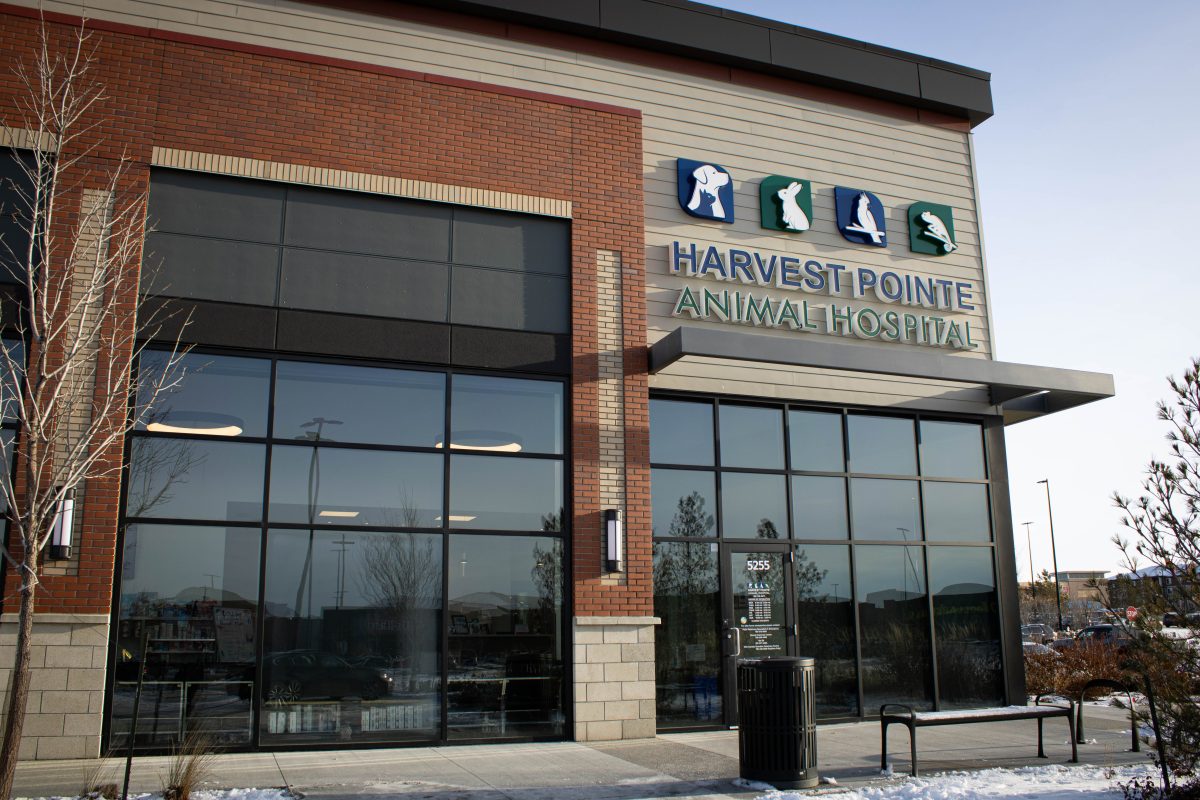
Harvest Pointe Animal Hospital is one of the only veterinary clinics in Edmonton equipped to take in exotic animals requiring care.
Dr. Daren Mandrusiak is a veterinarian and the medical director for Harvest Pointe Animal Hospital. He is a veterinarian who practices almost exclusively with exotic animals and is trying to become an Avian Specialist.
“When I was finishing my undergraduate degree at the U of A, I was lucky enough to get a job as a zookeeper. So, working at the Edmonton Valley Zoo, that’s where I met, who is now my business partner, Dr. Susanna Ogle. We were both zookeepers there previously, which got us both interested in zoo and wildlife medicine,” said Dr. Daren Mandrusiak. ” She went off to Calgary, to the vet school in Calgary. I went off to the vet school in Saskatoon, and in Saskatoon, my interest just grew into more wildlife and exotic animals. The department at the University of Saskatoon that handles wildlife and zoo animals also handles all the exotic pets. And so, just through being involved and working in that department, became involved in exotic pets, and now that’s most of what I do.”
The term “specialist” is often misused when describing a veterinarian interested in working in a specific type of veterinary medicine and is a protected term in the province of Alberta.
“It’s like a specific designation. It’s a protected term in veterinary medicine and human medicine. And so, hopefully, fingers crossed, I’ll be an Avian specialist in, specifically, by the next year. But at this point, there is no specialist for exotic animals west of Saskatoon in Canada,” says Dr. Mandrusiak. “It’s super hard, the testing is like really, really intensive. And so, it’s very difficult to achieve. It’s a very high bar.”
There are many different routes to specialize in exotic animals, but typically, veterinarians specialize in one of these fields:
- Birds
- Reptiles
- Amphibians
- Exotic Companion mammals
Even though becoming a specialist in exotic animal medicine is difficult, more veterinarians are becoming interested in their care as their popularity increases. Not only that, but their quality of care is as well.
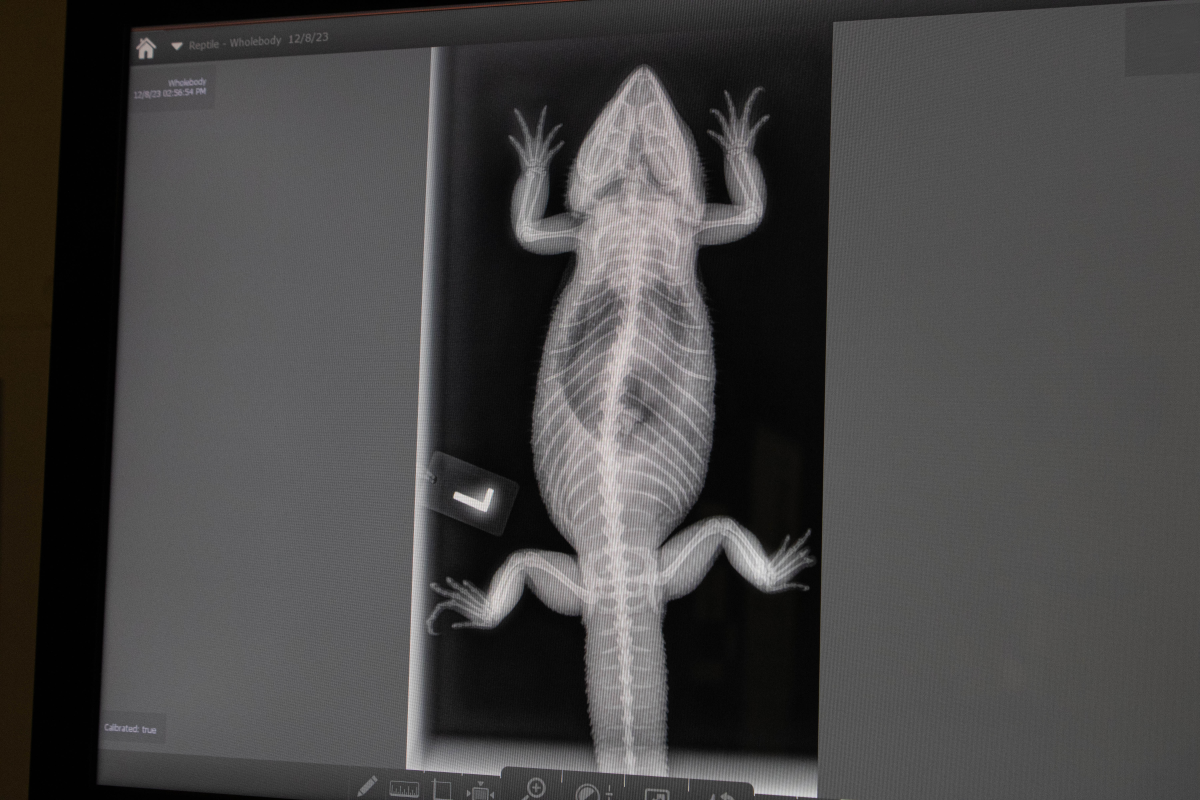
“They’re very interesting because they’re, they’re different and they’re poorly understood. And because they’re poorly understood, there’s a lot of veterinarians and technologists, registered veterinary technologists (RVTs) who are nervous to work with them because their anatomy is different, their physiology is different, the way that we treat them can be different. And so, because the mass population of veterinarians and RVTs are nervous to work with them, traditionally they’ve gotten less appropriate care.”
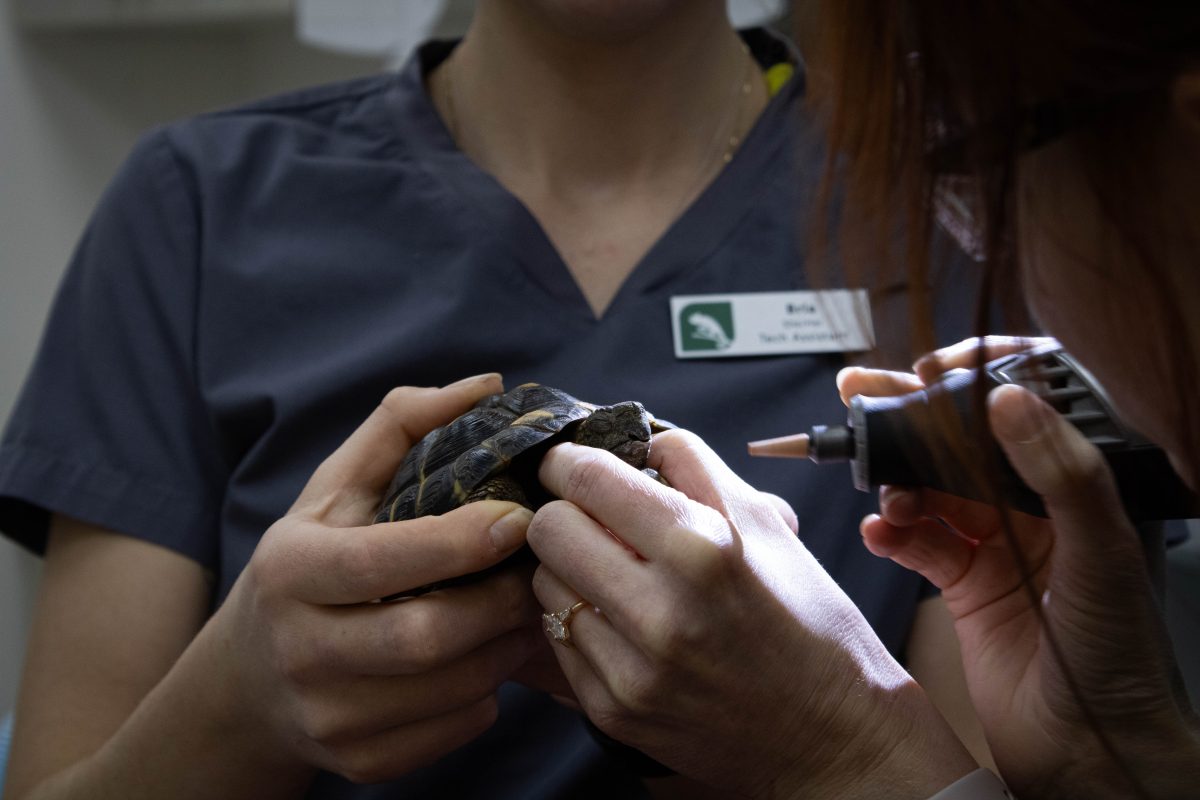
Historically, exotic animals would have access to a lower standard of care than dogs and cats as their type of medicine is very niche and often unheard of, leaving animals who need care without it.
“A lot of these patients don’t have a lot of options. Honestly, there’s very, very few exotic animal veterinarians, and most of them work here. And so, it’s one of those things where if we didn’t stick with it and really focus on it, there’s a lot of pets, I think, would go without good medicine and good veterinary care, which would be really unfortunate.”
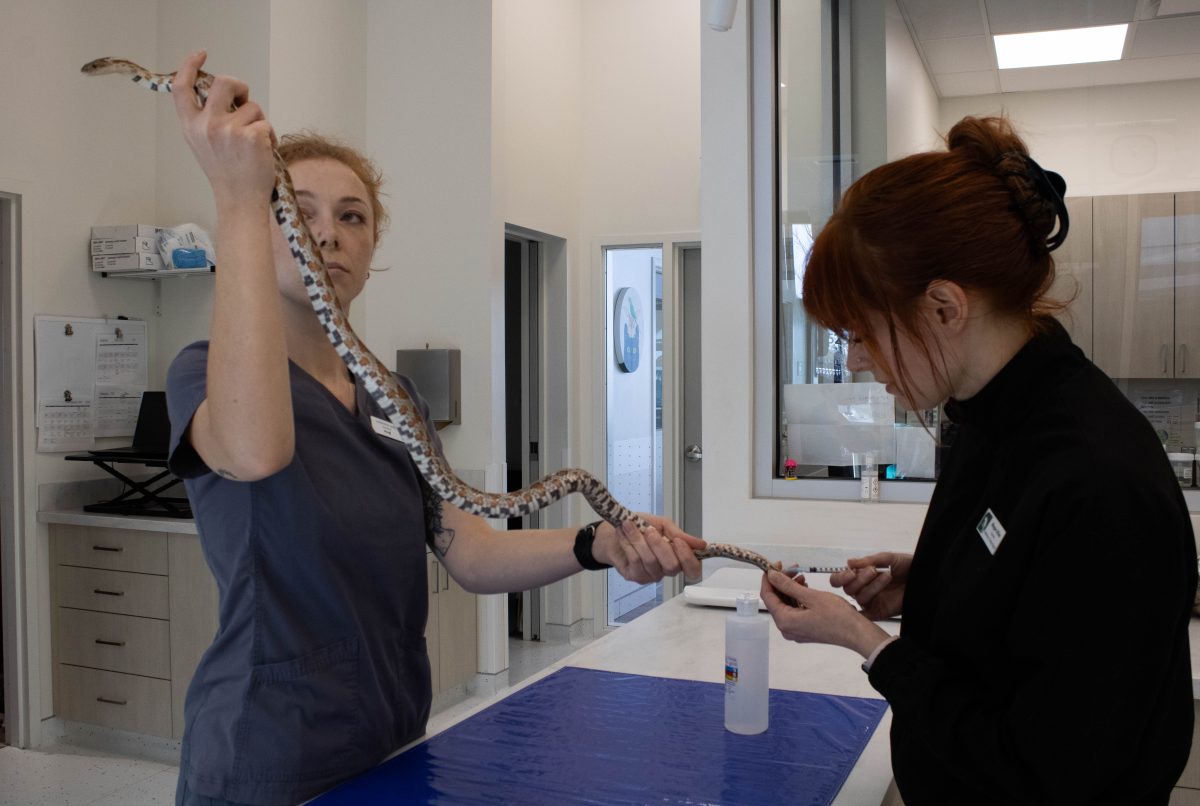
Mandrusiak says there are many different reasons for the increase in the popularity of exotic animals, but a big one is social media. Through social media, exotic animal care has gotten a lot bigger than it would have been a while ago, as it’s brought more exposure worldwide for people who have these pets but don’t know where to get them proper care.
“There’s a good presence on social media. Some really well-known exotic vets in different vet clinics across the world that have kind of increased exposure, as well as kind of on traditional television platforms,” says Dr. Mandrusiak. “We’ve also seen an increase in the exposure to exotic animal veterinary medicine through things like Dr. K’s exotic vet and stuff like that and some pretty popular shows. Which I think has increased interest from people.”
Mandrusiak says social media has been really helpful in getting information out to the world, but sometimes it’s not the right information. So, when it comes to caring for exotic animals, it’s really important to ensure they get the right and most up-to-date care.
“We spend a huge amount of time with every single exotic appointment discussing husbandry, especially on initial exams or annual wellness exams. We probably spend more time discussing husbandry than we do examining animals, honestly. And so, our techs go in and take a very thorough husbandry history on how you are caring for it.”
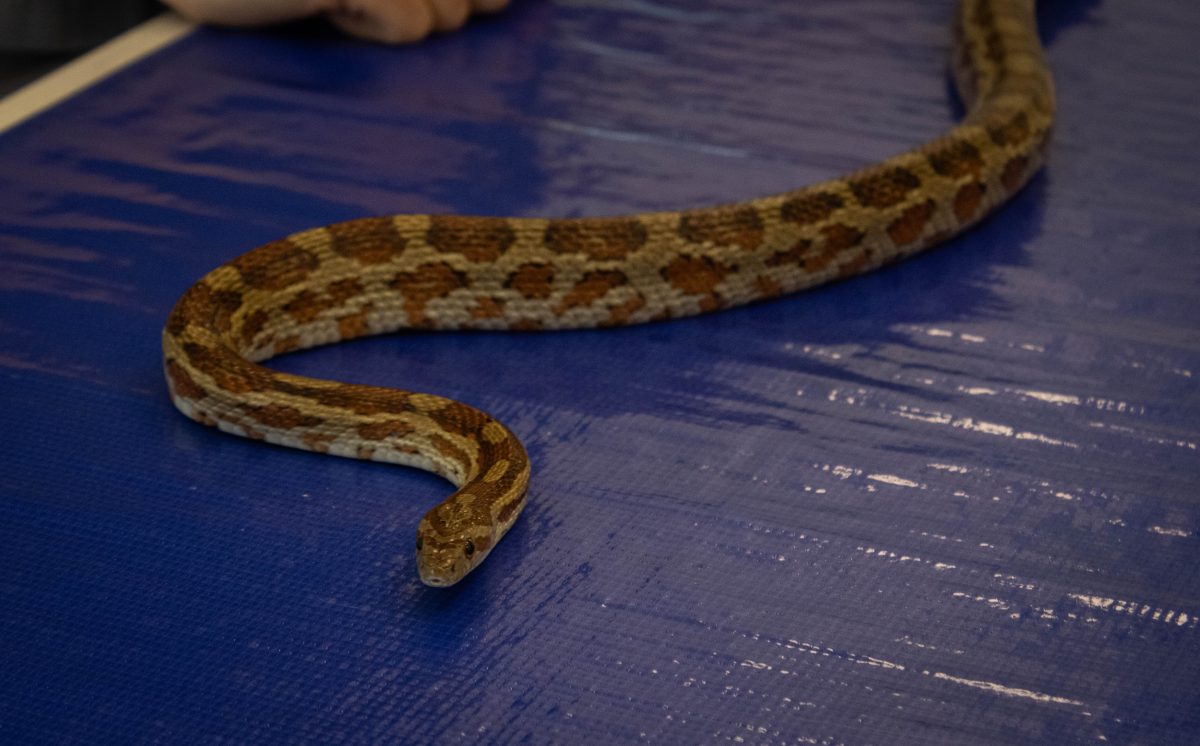
So, what exactly is an exotic animal? And what kind of exotic animals do clinics like Harvest Pointe Animal Hospital typically treat? An exotic animal is anything that isn’t a dog, cat or anything that lives on a farm.
Exotic Animals that the Clinic treats by Aivree Irvine“The lines are getting blurred a little bit because now there’s people that have pet goats, and it’s like, well, do I bring them to the farm vet or do I bring them to the exotic vet? And I think it kind of depends on the individual clinic and what they do. We’ll see pet chickens at our clinic, but we won’t see pet pigs, and that’s just a personal decision that we made because of the structure of our building.”
With exotic animals becoming more popular, more and more veterinary professionals are interested in them, which Mandrusiak says means a higher standard of care. However, in dire situations, treatment may not be available depending on the time of day.
“If it’s two in the morning and you want to find someone for your gecko, that’s really hard. If you’re a dog, you got like three or four options. If you’re a leopard gecko, you might not get seen. They might tell you no, and then there’s nothing you can do, which is really, really scary for people. If your budgie starts bleeding at 11 o’clock at night, what are you going to do, right? We work very closely with our emergency clinics to try and keep them accepting our patients so that they can get overnight care. That’s something we spend a lot of time working with our hospitals and Boreal Veterinary Centre; the new emergency referral center on the Northwest side has been really fantastic about, you know, getting training for their staff and trying to get them comfortable with that so that they can do that overnight and that triage work.”
